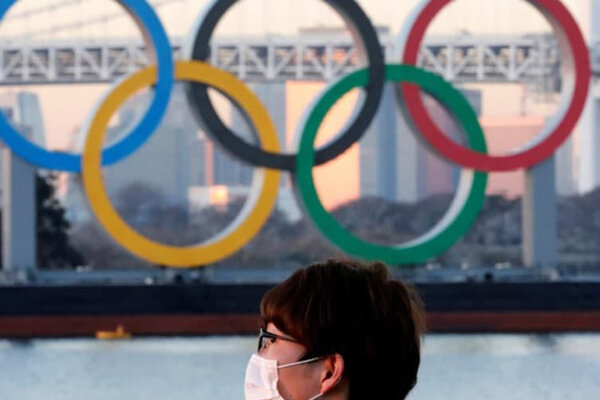The decision comes just three months before the July 23 opening of the Tokyo Olympics and attempts to make the games "safe and secure," as surging coronavirus cases cloud the event.
According to Nikkei Asia, the nation's medical system faces new pressure from the rise in infections tied to COVID-19 variants. The state of emergency -- the third declared in Japan since the onset of the pandemic -- includes Osaka, Kyoto, and Hyogo prefectures and lasts from Sunday through May 11.
Prime Minister Yoshihide Suga will hold a news conference tonight to explain the reasons for declaring the state of emergency and measures to prevent infection.
"We would like to curb infections by taking intensive measures, mainly during Golden Week," Prime Minister Yoshihide Suga told reporters Thursday, referring to Japan's major holiday period starting next week.
With no clear end to the pandemic in sight, Olympic organizers face increasing difficulty making important decisions and preparations. The Tokyo 2020 committee originally intended to determine this month whether domestic spectators would be permitted, but Nikkei reported Tuesday that the organizers now look to delay this decision.
The Olympic torch relay across Japan, intended to boost public excitement for the games, was canceled in Matsuyama, a city on the southern island of Shikoku. In Osaka, where COVID variants are spreading rapidly, a relay was held this month but runners avoided public roads as a countermeasure.
Based on estimates that 10,000 medical workers will be needed at competition venues and training centers, organizers remain "in discussion" with Tokyo's metropolitan government and local medical associations over how this will be realized, said Seiko Hashimoto, president of the Tokyo 2020 committee.
Roughly 30,000 athletes and officials are expected at the Olympics. Japan's inoculation campaign trails that of many other developed countries, and organizers do not plan to require vaccination for individuals present at the events. Tokyo 2020 is set to publish the second edition of the "playbook" guidelines for holding the games in a safe and secure manner this month.
Toshihiro Nikai, secretary-general of Japan's ruling Liberal Democratic Party, made the surprising comment last week that canceling the Tokyo Olympics "could be an option" if the coronavirus spreads further. But the possibility was rejected by Hashimoto and Olympics Minister Tamayo Maruyama, stressing that they are not considering cancelation.
Suga told reporters on Tuesday that a state of emergency would not impact holding the Olympics. The prime minister faces a leadership test ahead of the general election expected this year for Japan's lower house of parliament.
During his summit last week with U.S. President Joe Biden, Suga told reporters at the White House that Japan will host the games "as a symbol of global unity." The joint statement after the summit said that "President Biden supports Prime Minister Suga's efforts to hold a safe and secure Olympic and Paralympic Games this summer."
MAH/PR


























Your Comment